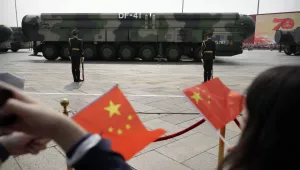Summary
China’s diplomacy is assuming a more assertive face by advocating harmony between countries and between peoples. This transformation has been commensurate with China’s power reemergence and with its reclaiming of the cultural richness of Confucianism. There are several major principles governing China’s practice of harmony-oriented diplomacy: 1) Being both outward-looking and inward-looking, seeking mutual adjustment and mutual adaptation with the world; 2) Seeking a multi-faceted win-win outcome; 3) Putting aside ideological differences and focusing on substantive cooperation in foreign relations; and 4) Establishing secure communities without the intention of sphere of influence, power politics, or dominance. Many countries welcome China’s practice of harmony-oriented diplomacy as it projects China as a benign power and makes China’s foreign policy more transparent and predicable. On the other hand, skeptics remain concerned about the sustainability and effectiveness of harmony-oriented diplomacy in a world of conflict. Only proper understanding of and reaction to China’s harmony-oriented diplomacy can help smooth China’s transition and orient it towards being a contributor to a better world order.
Wu, Xiaohui (Anne). "The Rise of China's Harmony-Oriented Diplomacy." POLITIKA Annual Journal, (2007): 22–26





